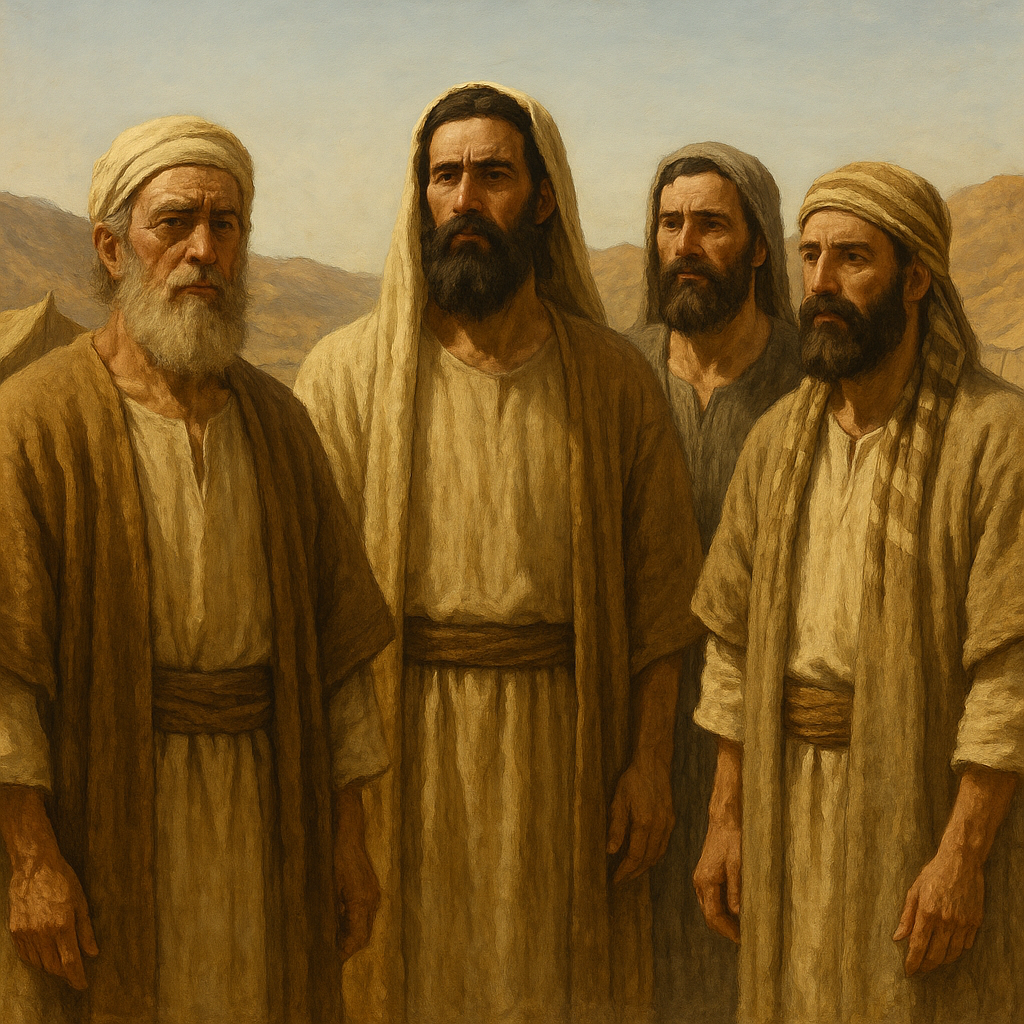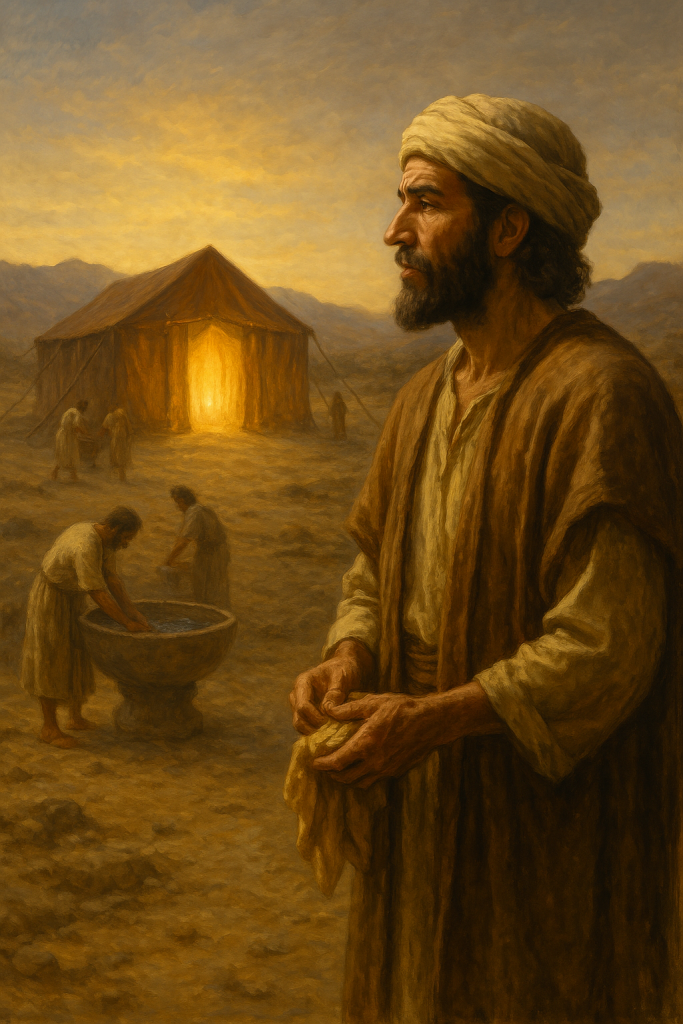Understanding the Leviticus 19 27 commentary is essential for anyone seeking a deeper grasp of biblical principles related to identity and holiness. This verse, often cited but sometimes misunderstood, provides clear guidance rooted in ancient cultural practices and spiritual symbolism.
The passage states: “Ye shall not round the corners of your heads, neither shalt thou mar the corners of thy beard.” (KJV) At first glance, it may appear to be merely a cultural restriction. However, when we explore its context, we discover profound lessons about separation from pagan customs and the preservation of a distinct identity for the people of God.
In the ancient world, surrounding nations often performed ritualistic haircuts and beard trimmings as acts of mourning or religious devotion to idols. Thus, God’s command in Leviticus was not merely about physical appearance, it was about spiritual allegiance. By forbidding these practices, God distinguished His people from idolatrous traditions, calling them to a life of purity and devotion.
Moreover, the Leviticus 19 27 meaning highlights a broader biblical theme: the call to avoid conforming to worldly patterns that conflict with divine holiness. This principle resonates even today. Whether through outward appearance or inward attitudes, believers are continually invited to reflect the character of God rather than adopting practices that dilute spiritual distinctiveness.
As we continue exploring this passage, it becomes evident that understanding the original context enriches our appreciation of the Scriptures. Keep reading to discover the historical background and contemporary significance of this important commandment.

Leviticus 19 27 Meaning
To fully grasp the Leviticus 19 27 meaning, it is crucial to understand the cultural and spiritual landscape of the time when this command was given. The instruction not to “round the corners of your heads” or “mar the corners of your beard” was far more than a matter of grooming; it was a clear directive to resist the influence of surrounding pagan nations.
In ancient cultures, particularly among groups like the Egyptians and Canaanites, specific haircuts and beard styles were often associated with religious rituals, idol worship, and mourning rites. By adopting such outward appearances, individuals visually identified themselves with the beliefs and practices of these foreign religions. Thus, the command in Leviticus 19 27 commentary aimed to protect the Israelites from blending into the idolatrous cultures that surrounded them.
More than a simple external rule, this instruction served as a visible sign of spiritual separation. God called His people to be distinct, not just in heart but also in action and appearance. Maintaining a different standard, even in matters like grooming, symbolized a deeper commitment to His covenant.
Today, while cultural expressions have evolved, the underlying principle remains timeless: believers are encouraged to reflect their allegiance to God through both inward devotion and outward testimony. Understanding the Leviticus 19 27 meaning reminds us that every aspect of our lives, even the seemingly small details, can serve as a testimony to whom we ultimately belong.
Continue reading to see how historical practices shaped the importance of maintaining spiritual identity.
The Cultural Influence on Forbidden Customs in Leviticus 19:27
When studying the Leviticus 19 27 commentary, it becomes clear that cultural influence played a significant role in shaping the commandments given to Israel. God’s instructions were not random prohibitions but purposeful separations from the deeply rooted customs of surrounding nations.
At that time, pagan societies such as the Egyptians, Babylonians, and Canaanites practiced specific grooming rituals tied to religious ceremonies. Shaving the sides of the head, cutting the beard into certain shapes, or disfiguring the facial hair were acts of devotion to their gods, particularly during mourning rites. These external symbols visually declared allegiance to foreign deities and spiritual systems.
Understanding the Leviticus 19 27 meaning in this context shows how critical it was for God’s people to maintain a distinct identity. By prohibiting these practices, God protected Israel from being absorbed into the idolatrous cultures that threatened their spiritual purity and covenant relationship. Their very appearance was to reflect holiness, not assimilation.
This command also reveals a broader biblical theme: God’s call for His people to be set apart, not conformed to the surrounding world. It wasn’t about arbitrary rules, it was about preserving the heart and soul of a nation called to represent His character on earth.
Today, believers continue to face cultural pressures that can subtly influence faith and practice. Reflecting on the cultural background of Leviticus 19 27 commentary encourages us to examine how we maintain spiritual distinctiveness in a world filled with competing values and symbols.
Read more: Psalm Club.
The Value of Religious Identity and the Separation Between Israelites and Pagan Nations
The Leviticus 19 27 commentary points to a much deeper reality than mere physical appearance. It reveals the importance God placed on maintaining a clear and visible distinction between His people and the pagan nations surrounding them.
In ancient times, outward symbols often signified inward allegiance. Hairstyles, beard styles, clothing, and rituals were not neutral; they communicated loyalty to specific gods or cultural systems. By commanding the Israelites to avoid particular grooming practices, God was protecting their spiritual identity from being confused with that of idol worshipers.
Understanding the Leviticus 19 27 meaning shows us that Israel’s identity was more than ethnic, it was spiritual. They were called to be a “holy nation,” a people set apart to reflect God’s nature in a world filled with spiritual darkness. Maintaining visible differences, even in small matters like grooming, served as a continual reminder of their covenant relationship with the Lord.
Moreover, this separation was not rooted in superiority but in purpose. God intended Israel to be a light among the nations, demonstrating a different way of living that pointed others toward Him. Their distinct practices were a form of testimony, a declaration that they belonged to the one true God.
Today, while the specific external symbols may differ, the principle remains the same. Believers are called to preserve their spiritual identity in a world that often pressures conformity. Reflecting on the Leviticus 19 27 commentary encourages us to ask: How can our daily lives, choices, and attitudes visibly honor the God we serve?
Continue reading to understand how this ancient principle continues to shape modern faith practices.
The Modern Application of Leviticus 19 27: How This Law Is Viewed Today
When examining the Leviticus 19 27 commentary through a modern lens, it becomes clear that interpretations of this passage vary across religious communities. While the cultural context of ancient Israel is essential to understanding the original meaning, the enduring principle of spiritual distinctiveness continues to resonate with many believers today.
Among Orthodox Jewish communities, the Leviticus 19 27 meaning is taken very seriously. Traditional Jewish law prohibits shaving the beard with a razor, a practice still observed by many devout men who see their beards as a visible sign of their faithfulness to God’s commandments. Special tools, like scissors or electric shavers that do not cut too closely to the skin, are often used to respect this instruction.
In Christian traditions, interpretations tend to focus more on the underlying spiritual message rather than strict external adherence. Many Christian scholars and leaders emphasize that while the physical expression of this commandment was culturally significant for ancient Israel, the broader call to holiness and separation from worldly influences remains timeless. Thus, the spirit of the law, living a life that visibly honors God, remains relevant even if the specific practice regarding hair and beards is not rigidly followed.
Additionally, understanding the Leviticus 19 27 meaning challenges modern believers to think critically about cultural conformity. It invites reflection on how one’s appearance, behavior, and choices can either align with or contradict the values of faith. The passage serves as a reminder that, although cultures change, the call to represent God’s character in a visible and distinguishable way remains constant.
As we navigate today’s diverse and complex society, reflecting on the wisdom found in the Leviticus 19 27 commentary can help guide personal decisions that honor the distinctiveness God desires for His people.
